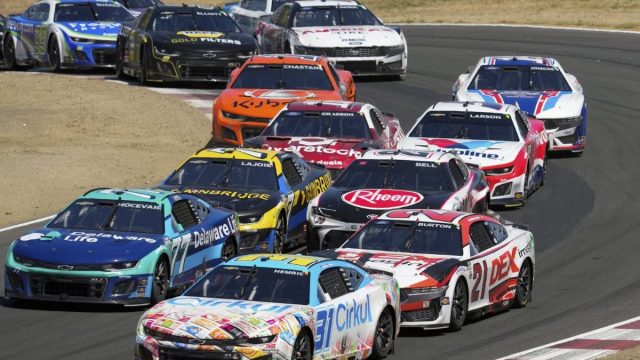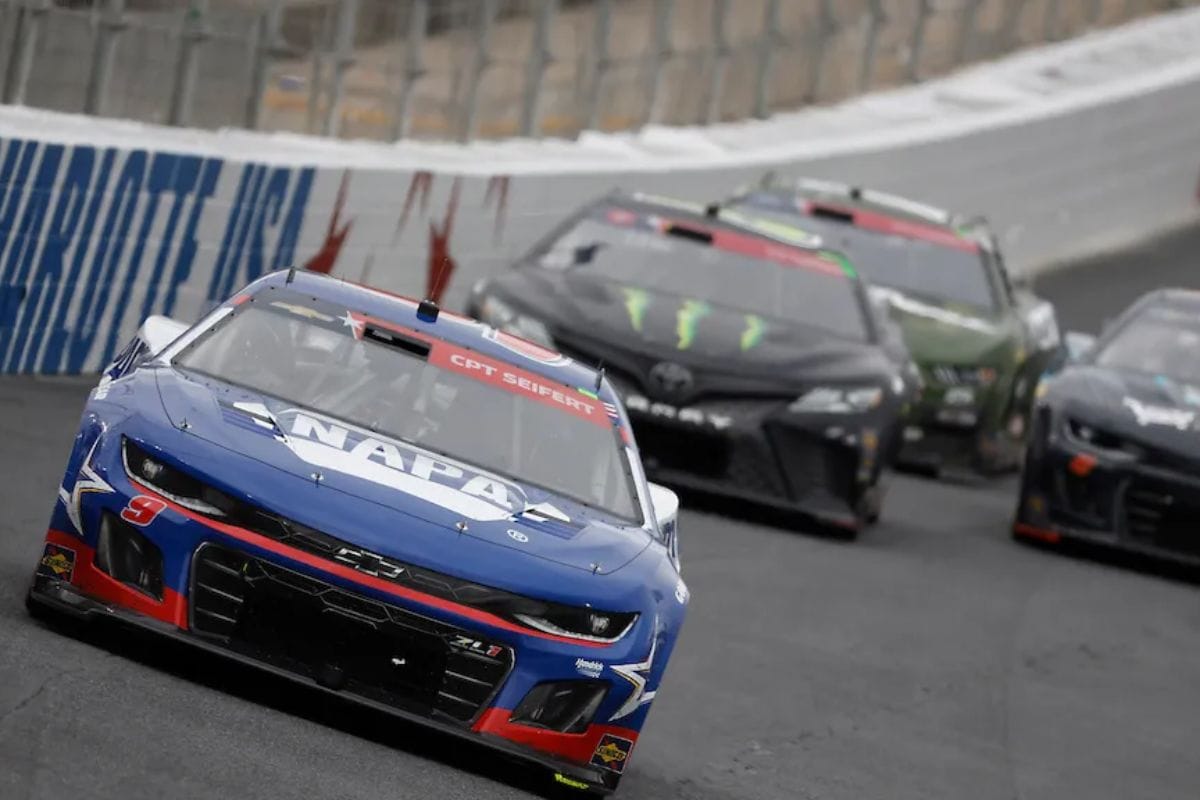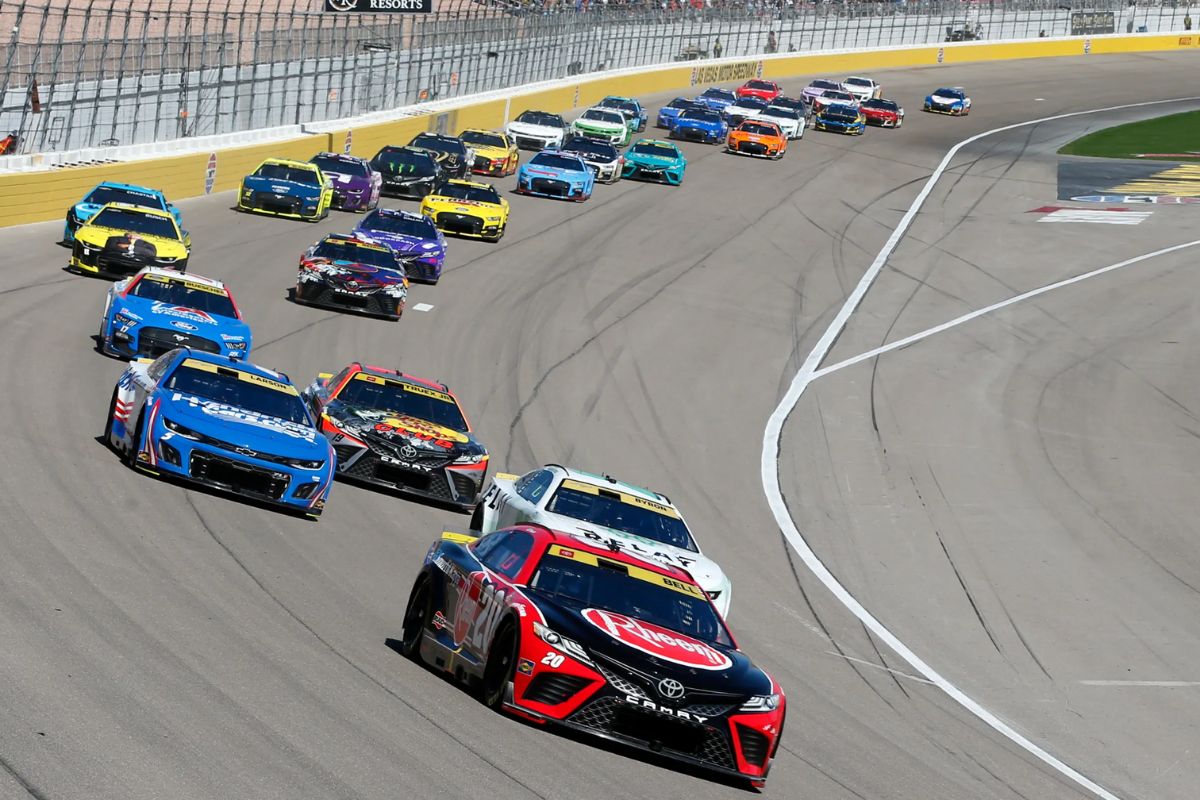NASCAR’s True Intentions Behind Blocking Foreign Investors: NASCAR’s recent decision to restrict foreign investment, particularly from sovereign wealth funds, raises notable questions about its underlying motivations and the implications for the sport’s future. Insiders suggest that this strategy may be rooted in a desire to preserve NASCAR’s integrity and authentic identity amidst a landscape increasingly influenced by global financial interests. As the organization grapples with the dual strains of growth and ethical stewardship, the potential fallout from this stance could reshape its relationship with fans and stakeholders similarly.
Key Highlights
- NASCAR aims to preserve its unique heritage and grassroots identity by blocking foreign investments from sovereign wealth funds.
- Concerns over sports washing drive NASCAR’s decision, as it seeks to maintain brand integrity and avoid reputational risks.
- A proposed ban reflects NASCAR’s commitment to ethical stewardship and transparency in the face of foreign capital influences.
- Ongoing charter negotiations create urgency for financial stability, making the rejection of foreign investments strategically beneficial for team support.
Foreign Investment in Sports and NASCAR’s Future
As the landscape of professional sports evolves, the potential influx of foreign investment into NASCAR presents both opportunities and challenges that could redefine the series’ future path.
The examples of Newcastle United and LIV Golf demonstrate a growing trend where foreign capital reshapes traditional sporting frameworks, enhancing competitiveness and global reach. For NASCAR, such investment could mean access to larger financial resources, enabling teams to innovate and uplift the overall spectacle of stock car racing.
However, these potential benefits come with inherent risks. The introduction of foreign investment may disrupt the established ecosystem, raising concerns about the dilution of NASCAR’s unique heritage and grassroots identity. Furthermore, the prospect of foreign ownership could complicate existing relationships among stakeholders, including team owners, sponsors, and fans who cherish the sport’s American roots.
The current discussions surrounding NASCAR’s version of the Concorde Agreement are critical; they may determine how inclusive or restrictive the series will be toward foreign capital.
The impending playoff season intensifies these considerations, as the lack of clarity regarding new charter agreements fosters uncertainty among teams and investors. It is crucial for NASCAR to navigate this complex landscape thoughtfully, balancing the allure of foreign investment with the need to preserve the sport’s integrity.
The decisions made in this key moment could ultimately determine whether NASCAR evolves into a more globally integrated entity or remains steadfastly committed to its foundational principles.
Proposed Changes and Potential Ban on Foreign Investments
NASCAR is considering substantial changes to its investment policies, including a potential ban on foreign investments from sovereign wealth funds, which could fundamentally alter the financial landscape of the sport. This proposed shift is driven by a desire to maintain the integrity of NASCAR amidst increasing concerns over the implications of foreign capital, particularly from countries with questionable human rights records.
Investments from entities like Saudi Arabia’s Public Investment Fund have raised alarms regarding the potential for “sports washing,” where nations utilize sports to improve their global image while diverting attention from ongoing social issues. NASCAR’s leadership seems intent on protecting the sport from this phenomenon, aiming to uphold a reputation that resonates with its core values and fan base.
While the move might seem restrictive, it highlights NASCAR’s commitment to ethical stewardship in an era where transparency is paramount. The potential ban could deter investments that may invite political scrutiny or unwanted influence, thereby preserving the autonomy of the series.
New rules that @NASCAR has included in charter drafts around private equity include a prospective ban on sovereign wealth funds, which would prevent the likes of Saudi Arabia's Public Investment Fund from investing in teams for the duration of the deal.https://t.co/naJnjA7y47
— Adam Stern (@A_S12) August 5, 2024
However, the challenge lies in balancing this protective stance with the need for financial growth and global outreach, as NASCAR seeks to broaden its appeal and investigate international markets.
Commentary from Jordan Bianchi on Sports Washing
Concerns about ‘sports washing‘ have become a focal point in discussions surrounding the integrity of major sporting leagues, with Jordan Bianchi highlighting the potential pitfalls NASCAR faces in navigating foreign investments from countries with controversial human rights records.
Bianchi’s insights on the Dale Jr. Download reveal growing apprehension among sports organizations about their reputations and ethical standings, particularly as they manage relationships with nations that engage in practices potentially harmful to their image.
“We hear this a lot, ‘sports washing’, where countries will, you know, Olympics, World Cup, Formula 1, and they will try to gloss over their oppressive regimes by having all these big sporty events that just kind of puts a good light on them. NASCAR doesn’t want to be cast in that. Doesn’t want to be used as a pawn in a way. You gotta look at the LIV Golf, that got a lot of investment from the Saudi groups, right?” – Bianchi
The term ‘sports washing’ refers to the strategy employed by countries to divert attention from their oppressive regimes by hosting high-profile sporting events. Bianchi emphasizes that NASCAR is conscious of this dynamic, highlighting the importance of maintaining its identity and integrity. By refusing foreign investments that could be perceived as legitimizing repressive governments, NASCAR aims to evade the backlash that has plagued other sports, such as LIV Golf with its ties to Saudi funding.
Bianchi’s commentary raises critical questions for NASCAR: Is the allure of substantial foreign capital worth the potential reputational damage? The answer, he suggests, leans towards a cautious approach.
“There’s a lot of backlash against them. How they portray themselves, who they are associating themselves with. If you’re NASCAR, is that something you want to do? Is that a PR road you want to go down? And the answer is probably not.” – Bianchi
NASCAR’s leadership appears to recognize the long-term implications of associating with entities that may be viewed skeptically by fans and stakeholders. As the sports landscape evolves, the organization’s proactive stance against ‘sports washing’ could not only preserve its brand integrity but also align it with a more ethically conscious sporting community.
Examples of Sovereign Wealth Fund Investments in Sports
The growing influence of sovereign wealth funds in sports emphasizes a complex interplay between financial power and ethical considerations, as evidenced by recent investments from the Saudi Public Investment Fund and Qatar Investment Authority in prominent leagues and teams.
With an estimated worth of $925 billion, the Saudi Public Investment Fund has made considerable inroads into the sports industry, owning LIV Golf, the Saudi Pro League, and a majority 80% stake in Newcastle United. The latter acquisition, completed amid public scrutiny, demonstrates how sovereign wealth funds can reshape the competitive landscape of traditional sports franchises.
Similarly, the Qatar Investment Authority has established its presence by purchasing a 5% stake in Monumental Sports & Entertainment, which oversees several Washington-based teams, including the NHL’s Washington Capitals and the NBA’s Washington Wizards. These investments exemplify the tactical maneuvering of sovereign wealth funds to gain visibility and capitalize in globally recognized sports markets.
However, such financial influx raises ethical questions regarding the motivations behind these investments. Critics argue that these funds engage in ‘sports washing,’ using investments to distract from human rights concerns and strengthen national reputations.
Importantly, the U.S. National Women’s Soccer League has opted to reject investments from sovereign wealth funds, exemplifying a growing movement among sports organizations to distance themselves from potentially controversial financial backers.
Impact on Netflix Documentary and Charter Negotiations
Amid ongoing negotiations regarding charter agreements, tensions are rising as NASCAR teams contemplate withdrawing from the upcoming season of the Netflix documentary series. This scenario highlights the intricate relationship between financial stability and media representation in the sport.
As teams grapple with the need for increased funding and security, they are leveraging their media participation as a negotiating tool. The impasse around charter agreements, which has persisted as teams seek greater compensation, directly impacts the potential for the continuation of the Netflix series, “NASCAR: Full Speed.”
Reports indicate that some teams are seriously considering stepping back from the documentary unless a resolution to the charter negotiations is achieved prior to the playoffs. This situation emphasizes the delicate balance NASCAR must maintain between showcasing its drivers and guaranteeing teams feel adequately supported financially.
“Some teams have considered not participating in a documentary if a deal isn’t done by the playoffs, others disputed that they would hold out, and it’s possible the sides could still find a resolution before the playoffs begin to allow for the docu-series to happen.” -as per Reports
If an agreement is not reached, Netflix may pivot to alternative content, focusing on the lifestyle of Cup Series drivers during the offseason, which could dilute the sport’s competitive narrative.
As the playoffs approach, the urgency for a charter agreement becomes paramount. Finding common ground will not only stabilize the financial landscape but also guarantee that NASCAR continues to grow its audience through compelling storytelling, reinforcing the mutual dependency between financial negotiations and media representation in modern motorsport.
News in Brief: NASCAR’s True Intentions Behind Blocking Foreign Investors
NASCAR’s decision to block foreign investors, particularly from sovereign wealth funds, reflects a calculated effort to uphold the sport’s integrity and heritage.
By prioritizing ethical stewardship and transparency, NASCAR aims to mitigate reputational risks associated with sports washing while fostering a strong grassroots identity.
This move not only addresses current financial dynamics but also reinforces the organization’s commitment to authenticity and community values, ensuring a sustainable future that aligns with NASCAR’s core principles.
ALSO READ: Insider Exposes NASCAR’s Rigged Competition: Top Teams Get All the Wins



